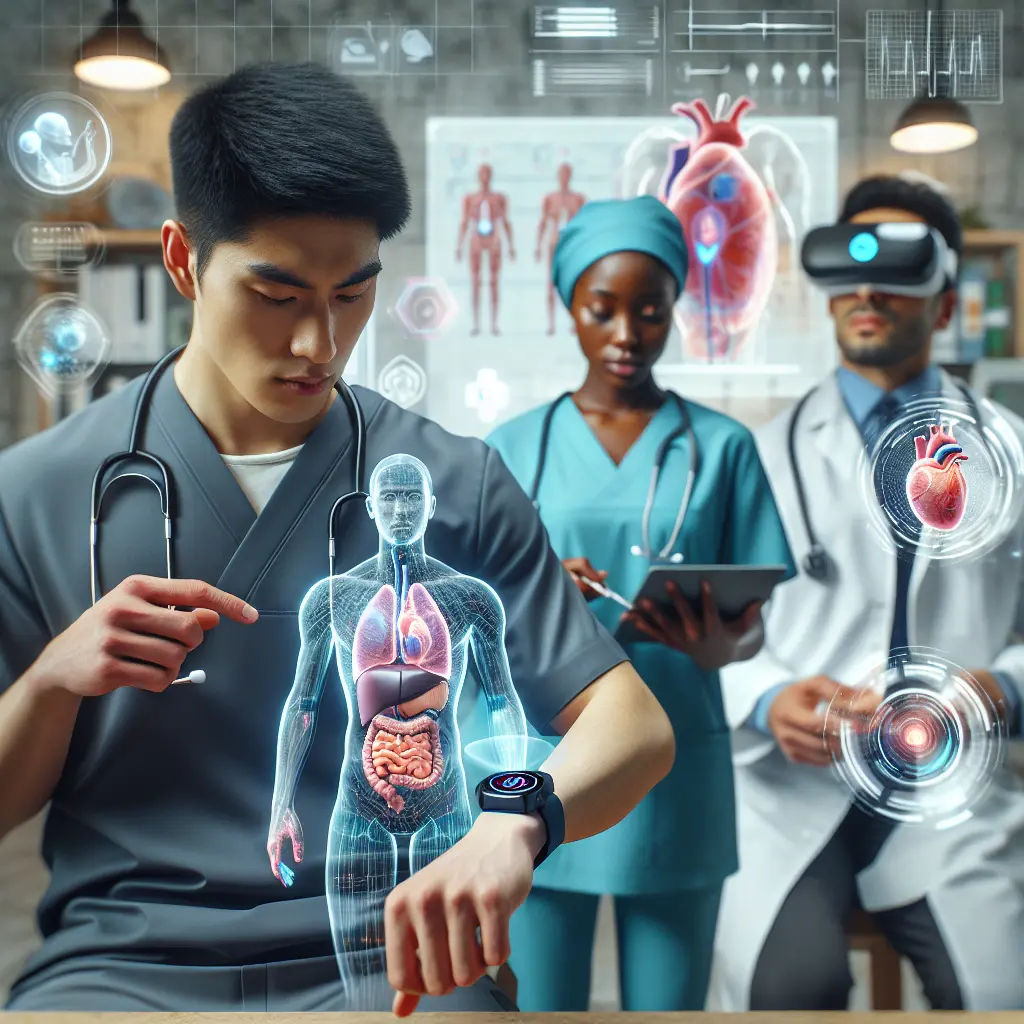
In an era defined by rapid technological advancement, wearable technology in healthcare is emerging as a pivotal force reshaping how medical services are delivered and experienced. The future of wearable tech promises to revolutionize patient care, offering unprecedented opportunities for monitoring, diagnosis, and treatment through healthcare wearables and smart wearables in healthcare. From wearable health devices that track vital signs to wearable medical devices offering real-time data to clinicians, the potential for improving patient outcomes is immense.
Wearable Tech Innovations: Addressing Healthcare Challenges
As we explore the future of health wearables, it's evident that the landscape is teeming with wearable tech innovations offering practical solutions to longstanding healthcare challenges. Wearable health monitoring systems are at the forefront, providing continuous data that can alert users and professionals to potential health issues before they escalate. These advancements underscore the significant impact of wearables on healthcare by enabling more personalized and proactive health management.
Integrating Wearable Technology into Everyday Life
The Rise of Smartwatches in Healthcare
Wearable technology trends indicate a surge in digital health wearables that integrate seamlessly into everyday life. One of the most significant developments is the introduction of advanced smartwatches. Google's recent unveiling of the Pixel Watch 3 exemplifies strides being made in this space. This versatile device is poised to be among the best Android smartwatches of the year, offering a range of health monitoring features that integrate seamlessly into users' daily lives source.
Similarly, the Samsung Galaxy Ring provides an innovative alternative to traditional wrist wearables. Combining style with functionality, this sleek device offers comprehensive health tracking capabilities, appealing particularly to health-conscious individuals source. Such devices' ability to monitor vital signs continuously underscores the potential of wearable health devices to revolutionize patient care.
Beyond Smartwatches: Emerging Health Wearables
While smartwatches remain popular, the future of wearable tech may lie in more discreet and versatile solutions. One such innovation is the development of a tiny patch that communicates with smartphones. This device represents a shift towards more subtle yet powerful wearable medical devices capable of providing real-time health data source.
Additionally, researchers have unveiled a non-invasive wearable device capable of recording involuntary nervous system activity. This groundbreaking technology could significantly enhance how medical professionals tailor treatments for conditions like sepsis and PTSD, marking a substantial leap forward in wearable tech innovations source.
Advancements and Impact of Wearable Technology in Healthcare
Wearable technology advancements are paving the way for increased efficiency within healthcare systems by reducing the need for frequent in-person visits. These devices not only save time and resources but also enhance patient engagement and satisfaction.
Enhanced Patient Management and Diagnostics
Devices like digital health wearables and wearable biosensors are instrumental in this shift, allowing for continuous health monitoring and early detection of potential issues. For instance, engineering students at Slippery Rock University are working on improving wearable sensors used in motion capture technology. These devices play a critical role in healthcare, particularly in monitoring patients' physical movements and rehabilitating those with mobility challenges source.
Moreover, integrating artificial intelligence into wearable health monitoring systems is enhancing their capabilities. Soter Analytics utilizes AI to assess workplace hazards, illustrating how smart wearables in healthcare can transcend traditional boundaries to offer broader safety applications source.
Wearable Fitness Trackers: Benefits and Challenges
Wearable fitness trackers have become synonymous with promoting healthier lifestyles. These devices encourage physical activity and provide users with insights into their fitness levels. However, their benefits extend beyond mere convenience; they empower individuals to make informed decisions about their well-being.
Addressing Privacy and Accessibility Concerns
Despite these advantages, challenges remain. Privacy concerns and data security are significant issues that need addressing to ensure users' trust in these technologies. Furthermore, integrating wearable technology benefits in healthcare requires careful consideration of user diversity and accessibility.
Navigating the Future: Trends and Implications
As we explore the future of health wearables, several trends emerge as particularly influential:
Integration with Healthcare Systems: Wearable technology must align more closely with existing healthcare infrastructures to maximize its potential. This integration will require collaboration between tech companies, healthcare providers, and regulatory bodies.
Focus on User-Centric Design: Devices must be designed with users' needs and preferences at the forefront. This includes ensuring ease of use, comfort, and reliability to enhance user engagement and satisfaction.
Advancements in Biosensors: The development of sophisticated wearable biosensors will enable more precise health monitoring and diagnostics. These advancements hold promise for early disease detection and personalized treatment plans.
Regulatory Considerations: As wearable technology becomes more prevalent, regulatory frameworks must evolve to address safety, efficacy, and ethical concerns. Clear guidelines will be essential to ensure these devices' responsible deployment in healthcare settings.
Expanding Market Opportunities: The growing demand for wearable medical devices opens new market opportunities for innovation and entrepreneurship. Companies that capitalize on these trends are likely to drive the next wave of technological breakthroughs.
Conclusion: Embracing a New Era in Healthcare
The future of wearable tech is bright, offering transformative possibilities for healthcare delivery and management. As we continue to explore this dynamic field, understanding the nuances of these technologies becomes crucial for professionals and enthusiasts alike. By embracing these innovations, we can look forward to a future where healthcare is not only more efficient but also more empowering for individuals worldwide.
In conclusion, while the road ahead presents challenges, the potential benefits of integrating wearable technology into healthcare are immense. By staying informed about wearable technology trends and remaining open to new possibilities, we can ensure that these digital marvels continue to shape the future of patient care for years to come.
Reflecting on Your Healthcare Journey
As you reflect on these insights, consider how wearable technology might shape your own healthcare journey. Share your experiences or thoughts in the comments below. Together, let's explore how we can harness these innovations to enhance well-being for all.
Author: Ronald Bishop